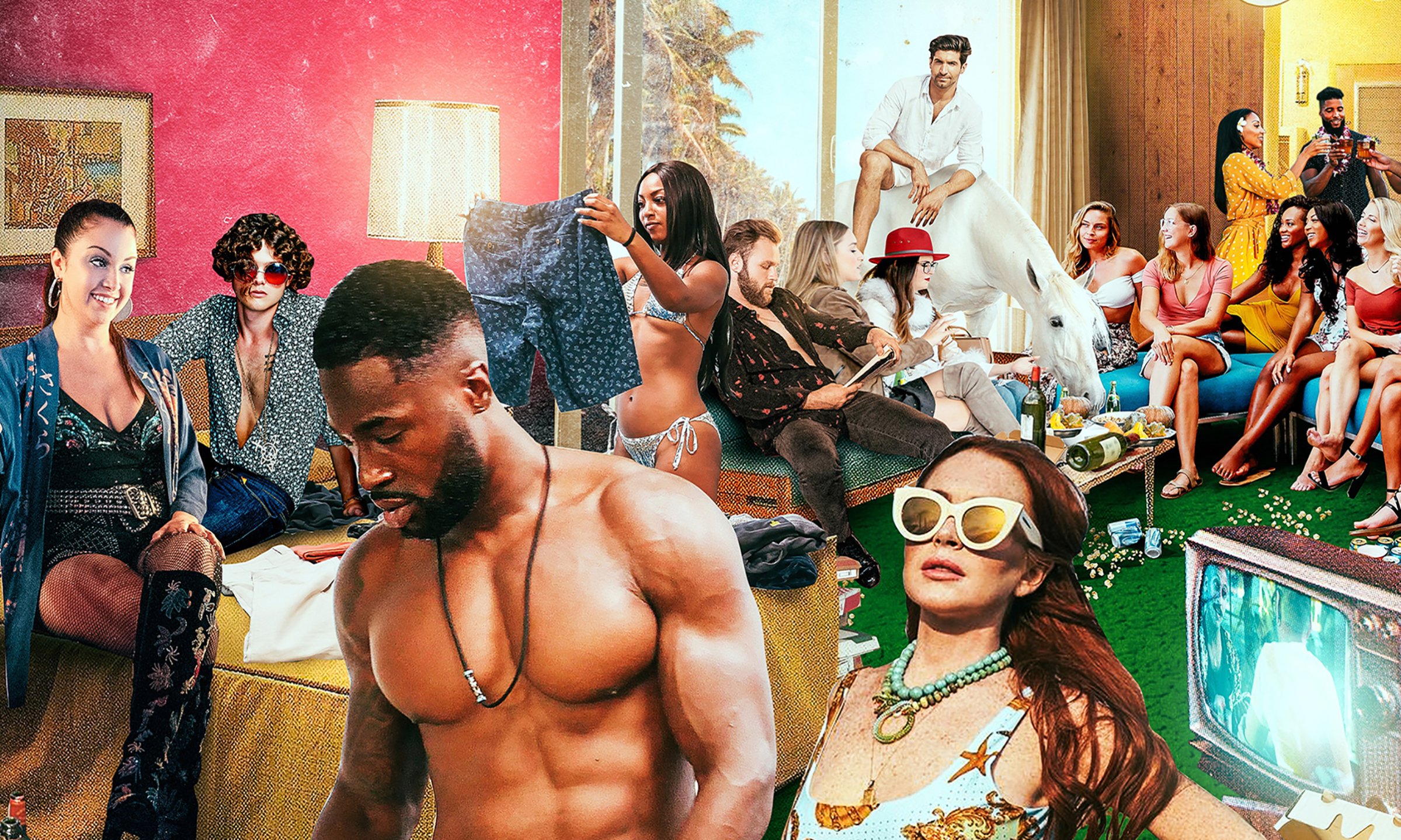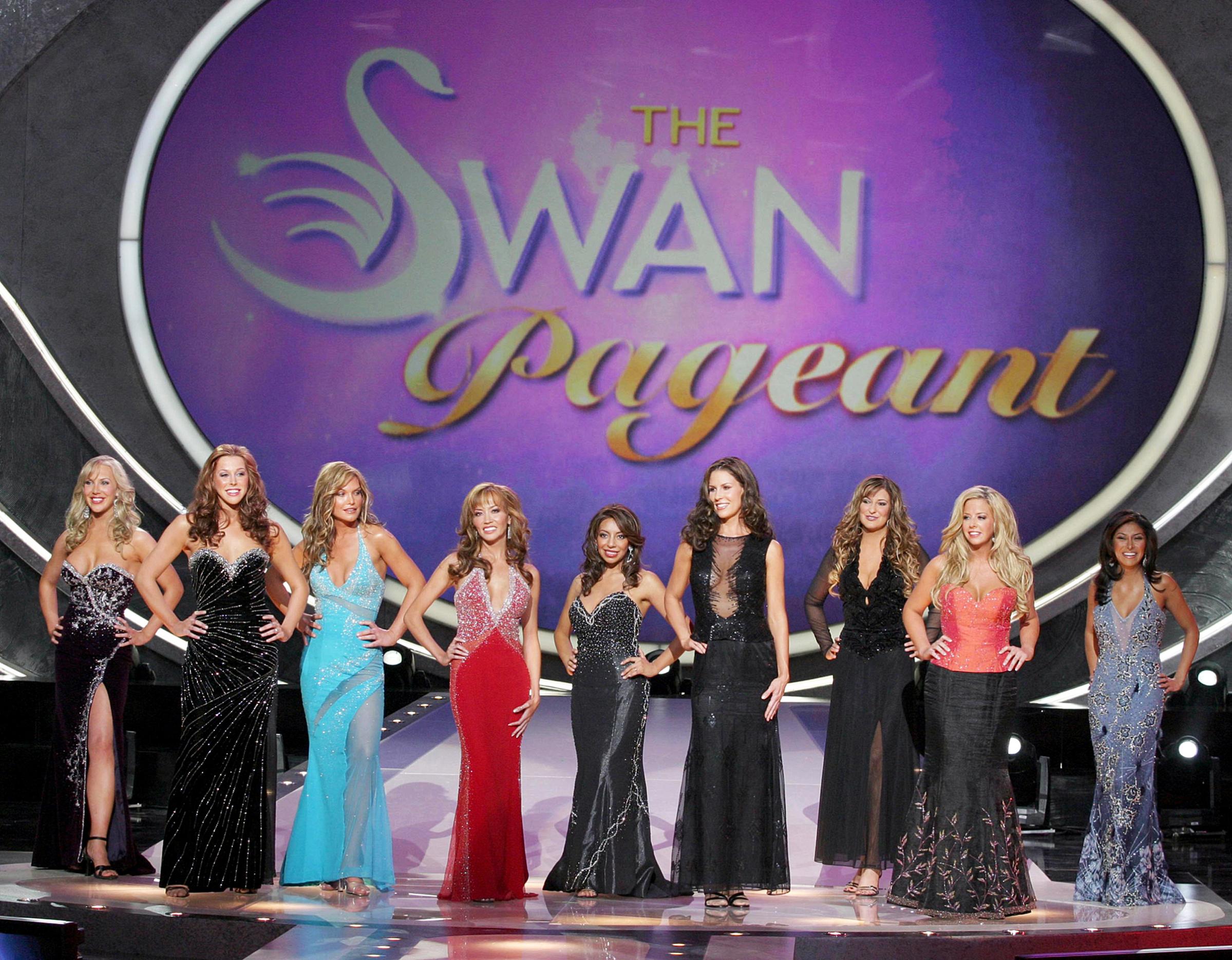
Lindsay Lohan’s Beach Club is a gift from the gods of trashy reality TV. It’s a repugnant yet addictive confluence of fame and infamy, spontaneity and contrivance, hedonism and consequences, aesthetic beauty and interpersonal ugliness. Among the schlocky treasures this new MTV series offers are a house–sorry, villa–full of hot young “VIP ambassadors” who are often half naked as hosts at the titular establishment, stunning Greek seascapes, lots of booze and, of course, tabloid magnet Lohan herself as ringmistress. There’s even a breakout jerk, Brent, a hunky, type-A narcissist who meets, insults, dates and splits with poor, pretty Sara within the first five episodes. The only alleged adults in sight are Lohan and her brusque business partner Panos Spentzos, mercurial bosses who bring about as much expertise to the management of humans as teenagers babysitting their younger siblings.
This show is a hit. Beach Club premiered, in January, as one of the top five new cable shows of the 2018–19 season among viewers 18 to 34. This is a surprise only insomuch as the series feels like a throwback to the early 2000s, when so many popular reality shows had no higher aim than to satiate viewers clamoring to watch rich, sexy, sorta-famous or simply exhibitionistic people hook up and antagonize each other. While this subgenre never stopped thriving on channels like Bravo, E! and VH1, it had been on the wane for most of the current decade. Even The Real World, which accidentally pioneered the format on the more experimental MTV of the ’90s, disappeared in 2017.
But in recent months, the exuberantly vapid reality show has shown signs of making a comeback–albeit one tailored to a new generation that values representational diversity. As Beach Club flourishes, networks are rebooting classic trash, from Temptation Island to Wife Swap to Paradise Hotel. Netflix has been launching Bravo-style docu-soaps (Made in Mexico, Westside, Yummy Mummies), plus an international array of dating shows: Australia’s Back With the Ex, Japan’s Ainori Love Wagon, New York City–based Dating Around. Meanwhile, The Real World will have a second life on Facebook Watch, where an Atlanta season is in the works.
The most clear-cut reasons for this resurgence are financial. Unscripted TV doesn’t rely on big-name actors (five Big Bang Theory cast members earned roughly $20 million apiece last year), writers’ rooms or sets constructed from scratch, so it’s cheap to make. That’s crucial now that a rapidly expanding television landscape has fragmented audiences and decimated ratings, even as the survival of cable brands–whose syndicated reruns can’t compete with the robust libraries of streaming services–depends on original content.
Reality shows are becoming the best option for channels like MTV, A&E and WGN, which have largely abandoned scripted fare of late, citing prohibitively high costs. Broadcast networks desperate for real-time eyeballs have kept reality competitions from Survivor to The Bachelor alive, despite declining ratings. ABC even revived Fox’s American Idol two years after its 2016 cancellation; Fox responded with this winter’s goofy The Masked Singer, which proved the family-friendly talent-show format could still yield a genuine hit. For Netflix, which has spent the past few years stockpiling original content, developing bingeable unscripted fluff (or licensing it from abroad) is a no-brainer.
Yet a cash-strapped industry doesn’t quite explain why the most egregiously frivolous brand of nonfiction programming has come roaring back. The first age of reality trash coincided with the larger reality-TV revolution that took place just after the turn of the millennium. That boom was an extension of the tabloid-fueled cable news cycle that drove pop culture in the ’90s, leading to shows like the Paris Hilton vehicle The Simple Life and The Hills, which found a way to capitalize on both schadenfreude and aspirational lifestyle porn at once. Subconsciously, the trauma of 9/11 and the ensuing war on terror may also have driven us to escape into rich-people problems.
By the mid-2000s, the market was oversaturated with reality stars who weren’t here to make friends, and–with notable exceptions including Bravo’s Real Housewives and E!’s Kardashian empires–tastes shifted. Reality TV had gotten decadent in its cruelty: Fox’s The Swan made over so-called ugly ducklings with extreme plastic surgery, while Bravo’s Boy Meets Boy tricked a gay man into pursuing straight pseudo-suitors.

Most reality shows that endured–Project Runway, The Amazing Race, The Great British Baking Show, The Voice, RuPaul’s Drag Race–turned out to have redeeming social or artistic value. At the same time, ambitious dramas took root on cable, quelling fears that scripted television was doomed to extinction. New vogues emerged in nonfiction television, from the rise of HGTV to an explosion of true-crime docuseries.
At the risk of stating the obvious, Americans are once again living through tumultuous times. Exhausted by the pace and tenor of news in the Trump era, collapsing onto the couch with Lindsay Lohan’s Beach Club feels easier than overtaxing my brain with a thoughtful show like True Detective. As this decade winds down, trashy reality TV might also be one more reboot of an early-2000s trend, like Juicy Couture tracksuits and flip phones, riding the 20-year nostalgia cycle back to relevance.
Yet these shows have returned at a more sensitive and media-savvy moment. A lack of diversity is now a cardinal sin; even the notoriously white Bachelor franchise finally cast a black bachelorette, Rachel Lindsay, in 2017. Casting tropes that force participants into stereotypical roles based on their identities (rightly) spark social-media outrage. If The Swan and Boy Meets Boy were announced today, they’d face immediate backlash for their retrograde premises.
As a result, reality trash 2.0 is more conscious of whom it’s representing, and how. Most of these tweaks are superficial: Temptation Island, a Fox creation that resurfaced on USA in January, tests relationships–and stokes jealousy–by separating four couples into male and female groups, then moving them in with scantily clad singles of the opposite gender. The format precludes same-sex pairs, but there are fewer white faces and one interracial couple this time. Made in Mexico, which follows Mexico City socialites, is framed as a rejoinder to President Trump’s views on Latin America (though its implication that viewers should have more empathy for the idle rich than for huddled masses rubs me the wrong way). Among multiple queer characters on Beach House is Mike, a bartender whose bisexuality is never framed as shocking.
Of all the shows in this cohort I’ve sampled, only Dating Around felt like something different. In each of six episodes, Netflix’s take on the syndicated dating games of the early 2000s–shows like Blind Date, elimiDATE, The 5th Wheel–sends someone looking for love on five blind dates. Later, the lead decides whom to meet for a second date. Though they’re almost all as conventionally attractive as the genre requires, pairings are gay and straight; daters encompass a range of races and religions. Refreshingly, any wine-fueled drama tends to get overshadowed by the pleasures of watching people get to know each other in good faith. A particularly sweet episode centers on an aging widower, Leonard, who’s just getting back in the game.
It’s probably a good thing that sleazy reality TV has committed to representing horny, angry, self-absorbed people of all backgrounds and identities. If this evolution is unlikely to merit widespread praise, at least it’s helping to make entertainment more diverse. But it takes more than superficial inclusion to transcend trash. Good nonfiction television should illuminate something about the human experience, instead of just wasting time between hookups and fistfights. It’s a distinction worth making, even if we don’t quit the junky stuff. And in this economy? I wouldn’t dream of it.
More Must-Reads from TIME
- Why Trump’s Message Worked on Latino Men
- What Trump’s Win Could Mean for Housing
- The 100 Must-Read Books of 2024
- Sleep Doctors Share the 1 Tip That’s Changed Their Lives
- Column: Let’s Bring Back Romance
- What It’s Like to Have Long COVID As a Kid
- FX’s Say Nothing Is the Must-Watch Political Thriller of 2024
- Merle Bombardieri Is Helping People Make the Baby Decision
Contact us at letters@time.com